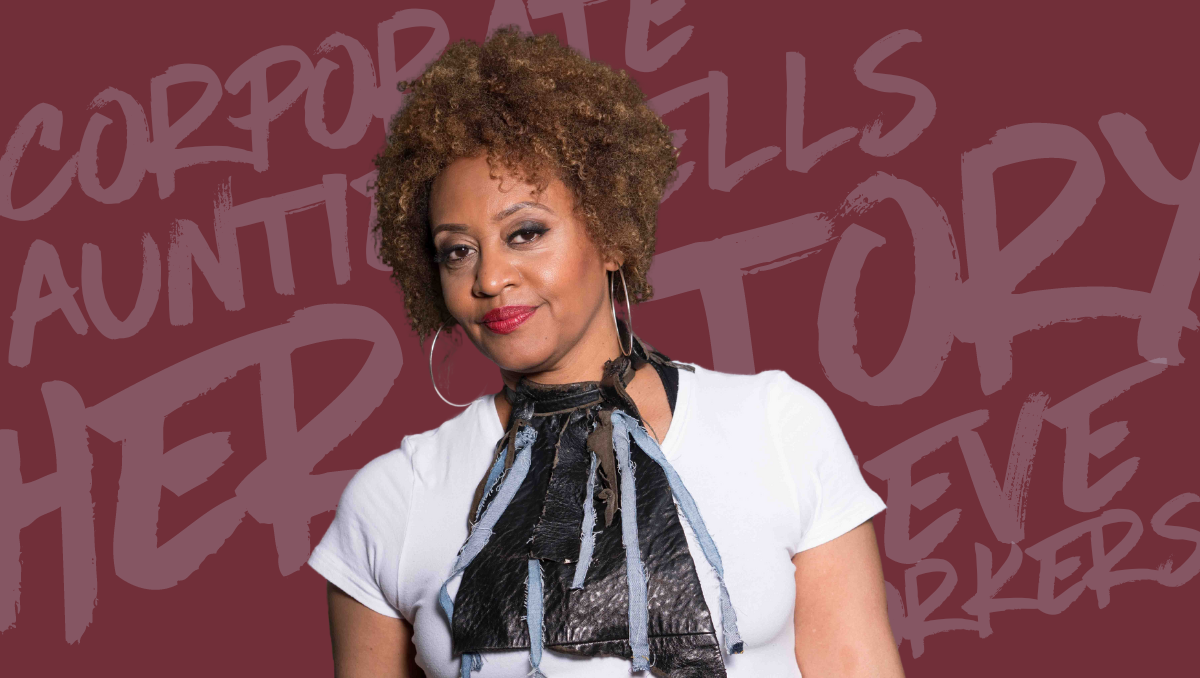Community conversations: “Corporate Auntie” Yolanda speaks out

Our communities are often left out of the decision-making conversations that impact our day-to-day lives. TechEquity works with workers and renters to center their voices in public policy solutions and industry regulations.
Storytelling has the power to shape the future. Knowing this, our TechEquity community has bravely come forward to share their lived experiences. These are their stories.
Meet Yolanda Renee Collins
I am known as the “Corporate Auntie.” I have over 20 years of corporate experience in multicultural marketing, events, and the diversity, equity, and inclusion (DEI) space in the Midwest and Bay Area. I started my career as a contract worker and have also been a contract worker in recent years. In stark contrast to the Midwest, Silicon Valley uses a lot of third-party staffing agencies; oftentimes, it seems to be their primary business model, using contract work more versus hiring direct employees.
Over the last 20 years, I’ve seen firsthand that contract work is worse than ever… Now, I find that the positions are put in place as a substitute for hiring full-time workers. The terms are very obscure, and I feel that companies are taking advantage.
Yolanda
One of the reasons I originally came to the Bay Area was to be in a market with a ton of tech opportunities. I was interested in working for one of the big tech companies. Immediately I found that every opportunity to make an inroad was a contract position—I was shocked. There was never a discussion of “you’re great and with 15 years of experience with major companies, like McDonald’s—we want to hire you outright.”
I’ve been recruited by headhunters who reach out through my LinkedIn and can tell you that the process of recruiting for contract positions is horrendous. It’s like an obstacle course to show you are a “good fit” for them, but the basic principles of recruiting are lost with the hiring process for contract roles. The length of time, the lack of follow-up, and the preparedness on their end when you show up for an interview. They will sometimes talk down or be degrading assuming contract workers are desperate and will take anything. There are so many times that I wanted to just say “thanks but no thanks,” but I wanted to see if maybe this time it was going to be different. And no, it wasn’t.
Over the last 20 years, I’ve seen firsthand that contract work is worse than ever. Starting out, the position was called a “temp” role. It was maybe 2 weeks to a few months usually to fill a very specific role on a temporary basis, like a vacation or maternity leave. And they were quicker to convert you if you were doing great. Now, I find that the positions are put in place as a substitute for hiring full-time workers. The terms are very obscure, and I feel that companies are taking advantage. The change from temp to contract worker felt disingenuous to me. I personally think discrimination is hiding its ugly face behind those very loose terms. I believe the change was to give the impression that they might keep you on but from what I’ve seen, the walk does not match the talk.
They’re saying “You’re a team player, you’re a key part of the company” but they still want to keep you on the outside. They are making the contract worker more disposable and creating toxic situations where they can be more abusive. With the recent layoffs, I noticed the majority were Black and brown, marginalized employees, and employees on HB1 visas.
If a contract worker dares say anything, they will be labeled as “problematic,” and their contract extension may be in jeopardy. They want workers who take what they’re given and don’t ask questions.
Yolanda
One of the roles I had was with a bootcamp that gave people soft skills for 6 months, then for the last 6 months, they were teamed with a tech company. It was designed to get Black and brown youth into tech and then to convert to direct employment. But from what I saw, quite frankly, that was not the case. Those young people were hired on as contract workers and they gave me feedback that they were then getting lost in the shuffle at those tech companies. Even when you tell the staffing companies that you’re having a problem at your placement, there is usually not someone in HR that you can go to.
At this bootcamp I worked for, one young woman was sexually harassed at the company where she was placed, and she escalated it to management. They put the blame on her so I intervened to stand up for her. Management was not happy. She, like many other workers, was ignored to protect profitability. When you speak up for yourself or those around you, you will definitely be met with “let’s have a conversation with employee-labor relations.” If a contract worker dares say anything, they will be labeled as “problematic,” and their contract extension may be in jeopardy. They want workers who take what they’re given and don’t ask questions.
I believe that companies are more concerned with protecting their bottom line and bringing in people with the greatest experience and skills while being able to pay them less. To me, this is a form of pay discrimination, but they call it contract work.
The positions and titles that I have been offered coming out of contract roles have been offensive. My counterparts, with whom I sat on a leadership team, were placed in positions with higher salaries and seniority. These were titles that I would have had 5-7 years ago in my career. If you’re a Black woman or a marginalized person in general, the titles or positions offered are a slap in the face. If you are outspoken and stand up for your rights, you are always taking a risk. It’s the office pet vs. threat effect. My career has been impacted, even lately, for speaking up. I’ve never felt totally safe in a corporate space—and as a contract worker even less so. You know everything you do is monitored under a microscope and if you’re from a marginalized community that microscope is even bigger. Personally, I feel like eyes are always watching, and it’s an unsettling, unsafe feeling—physically and psychologically.
If I were able to give myself years ago or give someone coming behind me advice, I’d say give yourself your own deadline for converting to a direct hire. Regardless of how great the company is and the perks they give you—backpacks and free food—know what your cut-off date will be. I also suggest talking to other contract workers because that’s how you’ll learn more information about what to expect. Whatever they tell you, “Believe Them.”
Share your story
Stories like Yolanda’s paint a picture of the realities of contract work today.
Do you have a story to tell? We want to hear it. We know that coming forward can be risky, so we’ll work with you to give you whatever level of anonymity you need.
Sharing your story can be a lever for change and have a ripple effect of impact; your story can inspire other people to step forward and share theirs.
Share your story
Share your experience as a worker or renter. Tell us your story here, or wait to get in touch with one of our organizers.





